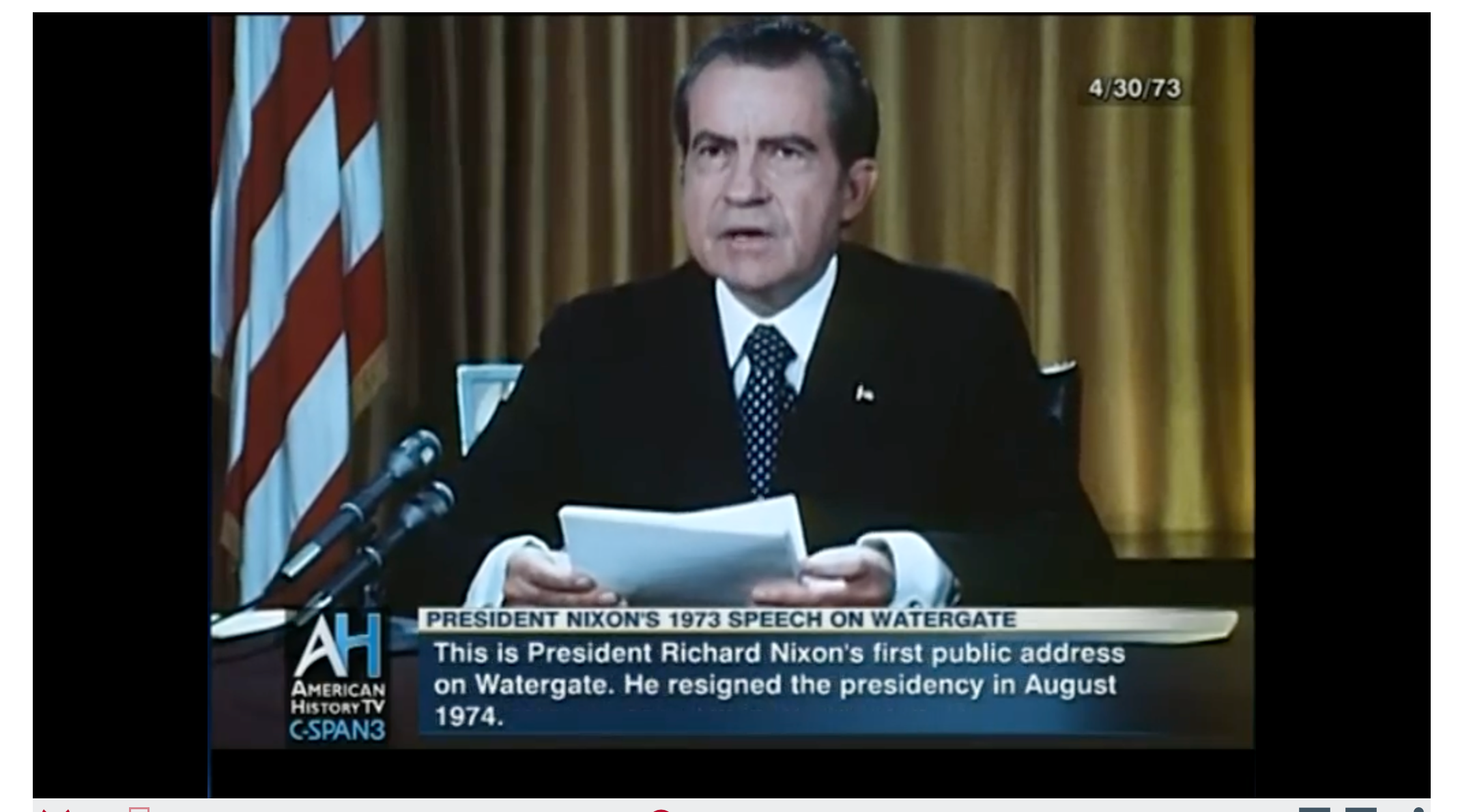
The Senate Select Committee on Presidential Campaign Activities, headed by Sen. Sam Ervin (D-NC), began televised hearings into the Watergate scandal on 17 May 1973. The investigation would end the presidency of Richard M. Nixon the following summer, 09 August 1974.
In 1973, public broadcasting was definitely the new kid on the television network block (ABC, CBS and NBC).
The Public Broadcasting Act of 1967 “sought to organize the scattered, independent, and largely ignored constellation of educational broadcasters into a national system sustained over the long term by a reliable source of federal funding.”
In November 1969, the Corporation for Public Broadcasting (CPB) created the Public Broadcasting Service (PBS) to develop and schedule national programming. The network launched on 05 October 1970, uniting nonprofit educational TV stations from across the country.
Nixon was not a fan of news media in general.
His administration even issued threats about denying broadcast license renewals for TV stations if they failed to get in line. He did not want another national news outlet criticizing his presidency, especially one receiving federal funding.
Nixon was able to target public broadcasting in particular via his appointees.
In early 1972, the CPB board, now with a majority of Nixon appointees, decided to limit funding to public affairs programs. … On February 20, 1972, the ACLU released a report that accused the Administration of trying to “intimidate” and “starve” public broadcasting.
It was in this environment that PBS polled its 237 member stations on the question of broadcasting the Watergate hearings; the measure passed with only 52% support.
For 47 days and nights, PBS covered the hearings from gavel-to-gavel. In that “pre-DVR era,” PBS also re-ran the hearings in prime time.
The broadcast opened with Robert MacNeil reading the Committee’s resolution:
In the Senate of the United States, a Resolution: To establish a select committee of the Senate to conduct an investigation and study of the extent, if any, to which illegal, improper, or unethical activities were engaged in by any persons, acting individually or in combination with others, in the presidential elections of 1972, or any campaign, canvas, or other activity related to it.
Any member station reluctance to broadcast was quickly dispelled.
… the notion that only Washington [DC] and New York audiences would be interested was shattered. Newspapers from locales as far ranging as Everett, Washington; Clearwater, Florida; and Galveston, Texas all praised the hearings. Cities close to the border received substantial positive support from Canadian viewers.
The following year, PBS repeated this process with the House Judiciary Committee impeachment hearings, providing both live and taped prime time coverage.
The coverage was a first, as was Nixon’s resignation.
:: Cross-posted from WiredPen
:: Image: CSPAN
Known for gnawing at complex questions like a terrier with a bone. Digital evangelist, writer, teacher. Transplanted Southerner; teach newbies to ride motorcycles. @kegill (Twitter and Mastodon.social); wiredpen.com
















